- Student
- Student
- News
- Business School
- Doctoral School
- International Dean’s Office
- International Cooperation Office
- Academic Career Office
- Academic Sports Association
- Library
- Student Groups
- Internships
- Electronic Examination Center
- Scholarship office
- Finance Department
- Your Stay in Poland
- Academic Schedule
- The Centre for People with Special Needs
- Alumni and Students Association
- Personal Student Profile
- Support Zone
- Virtual University
- Contact
- Individual Study Plan
- Admissions
- Admissions
- Research
- University
- Erasmus+
Otwórz/zamknij menu dostępności przy pomocy klawisza Enter
COOPERA Project Work Packages & Timeline
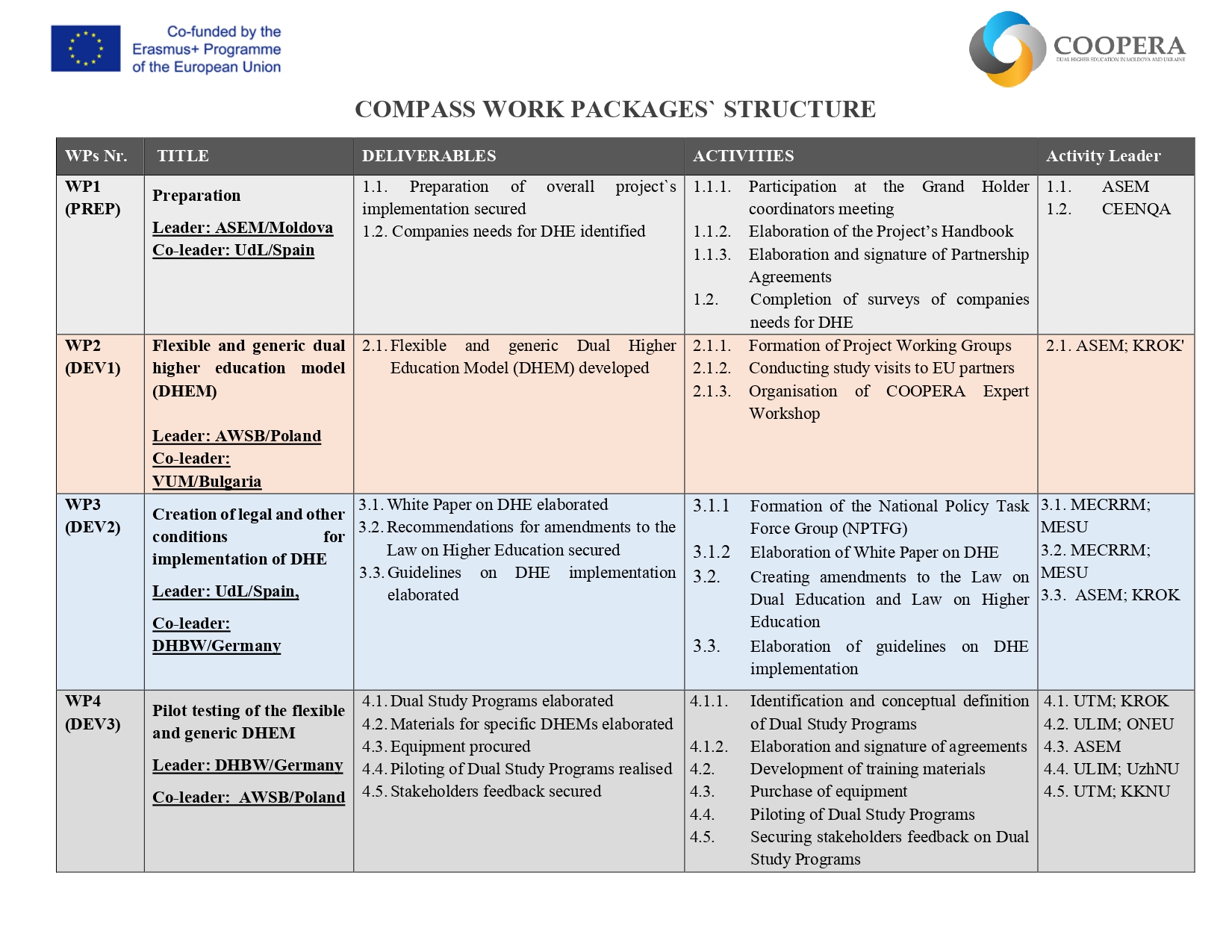
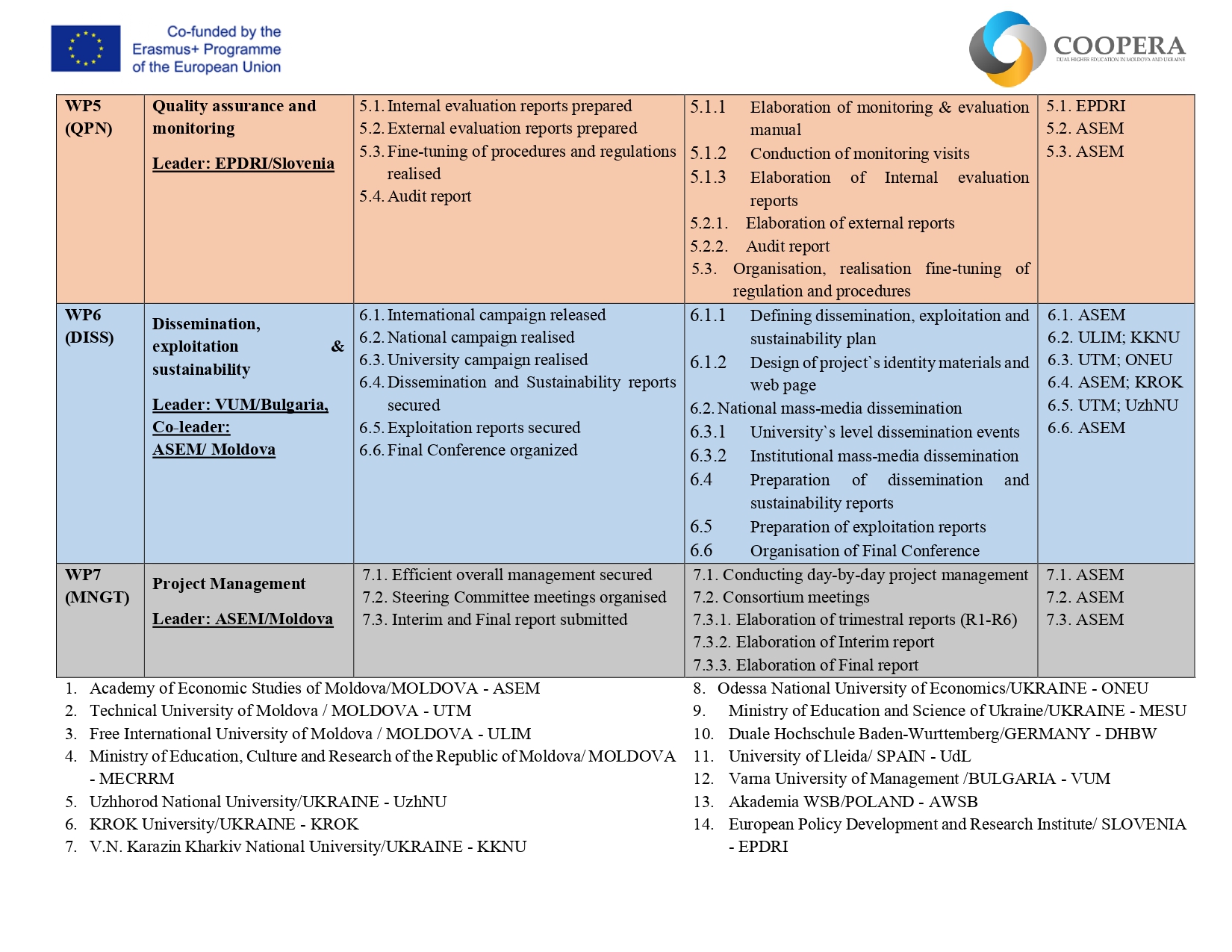
The COOPERA project is structured into seven core Work Packages (WPs), each with specific goals to develop and implement Dual Higher Education (DHE) in Moldova and Ukraine.
WSB University plays a leading role in this ambitious initiative:
Leader of WP2 (DEV1): Our primary responsibility is leading the development of a Flexible and Generic Dual Higher Education Model (DHEM). This involves forming expert working groups, organizing study visits to EU partners, and hosting a key expert workshop to design the foundational model for dual studies.
Co-Leader of WP4 (DEV3): We co-lead the Pilot Testing phase, supporting our partners in implementing and testing the developed dual study programs with real students and companies.
The other work packages ensure a comprehensive approach:
- WP1 (PREP): Project preparation and identifying company needs.
- WP3 (DEV2): Creating the necessary legal framework and conditions for DHE.
- WP5 (QPN): Quality assurance, monitoring, and evaluation of all activities.
- WP6 (DISS): Dissemination, exploitation of results, and ensuring sustainability.
- WP7 (MNGT): Overall project management.
This collaborative effort brings together universities, ministries, and experts from Moldova, Ukraine, Germany, Spain, Poland, Bulgaria, and Slovenia to modernize higher education and enhance graduate employability through dual studies.
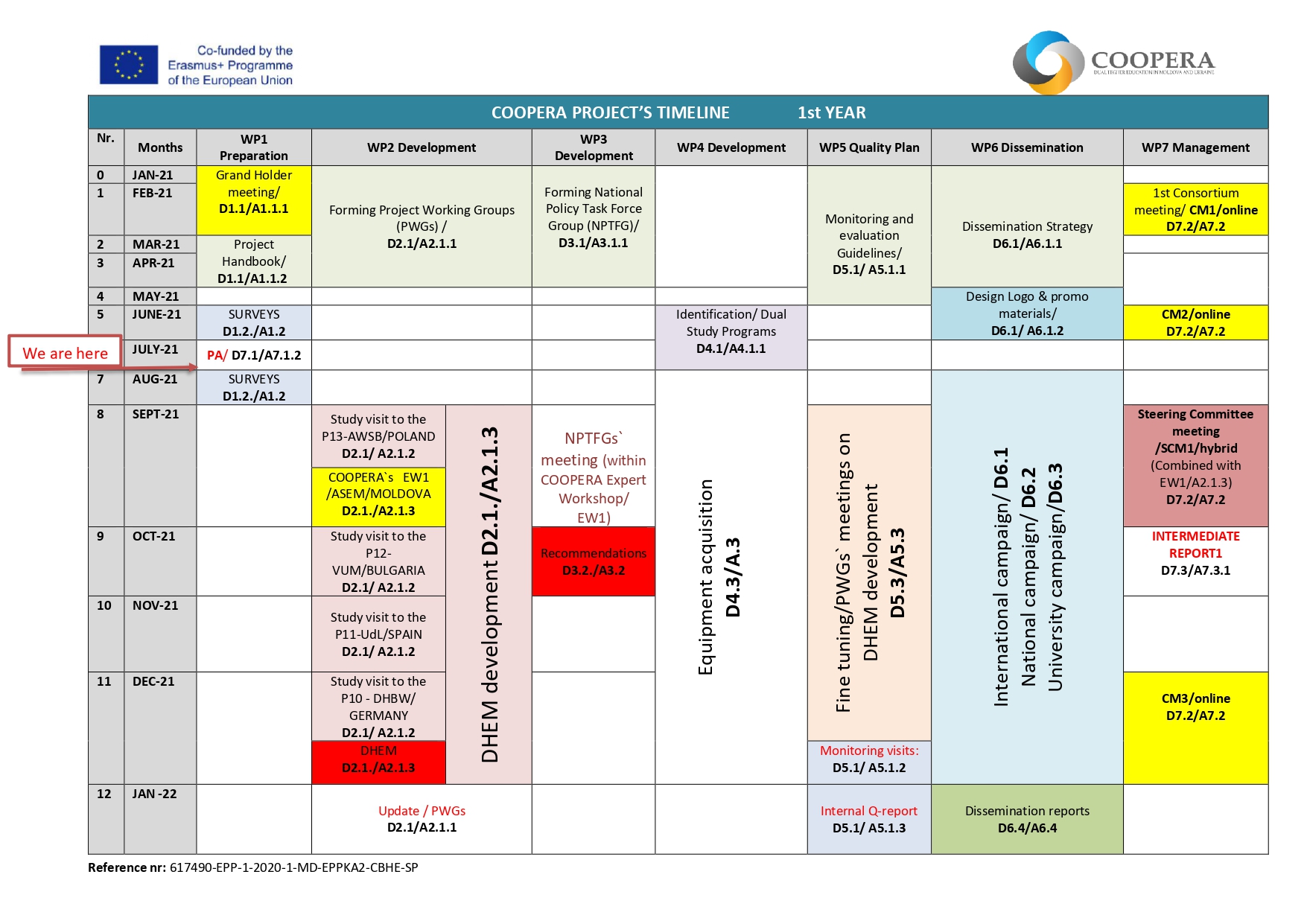
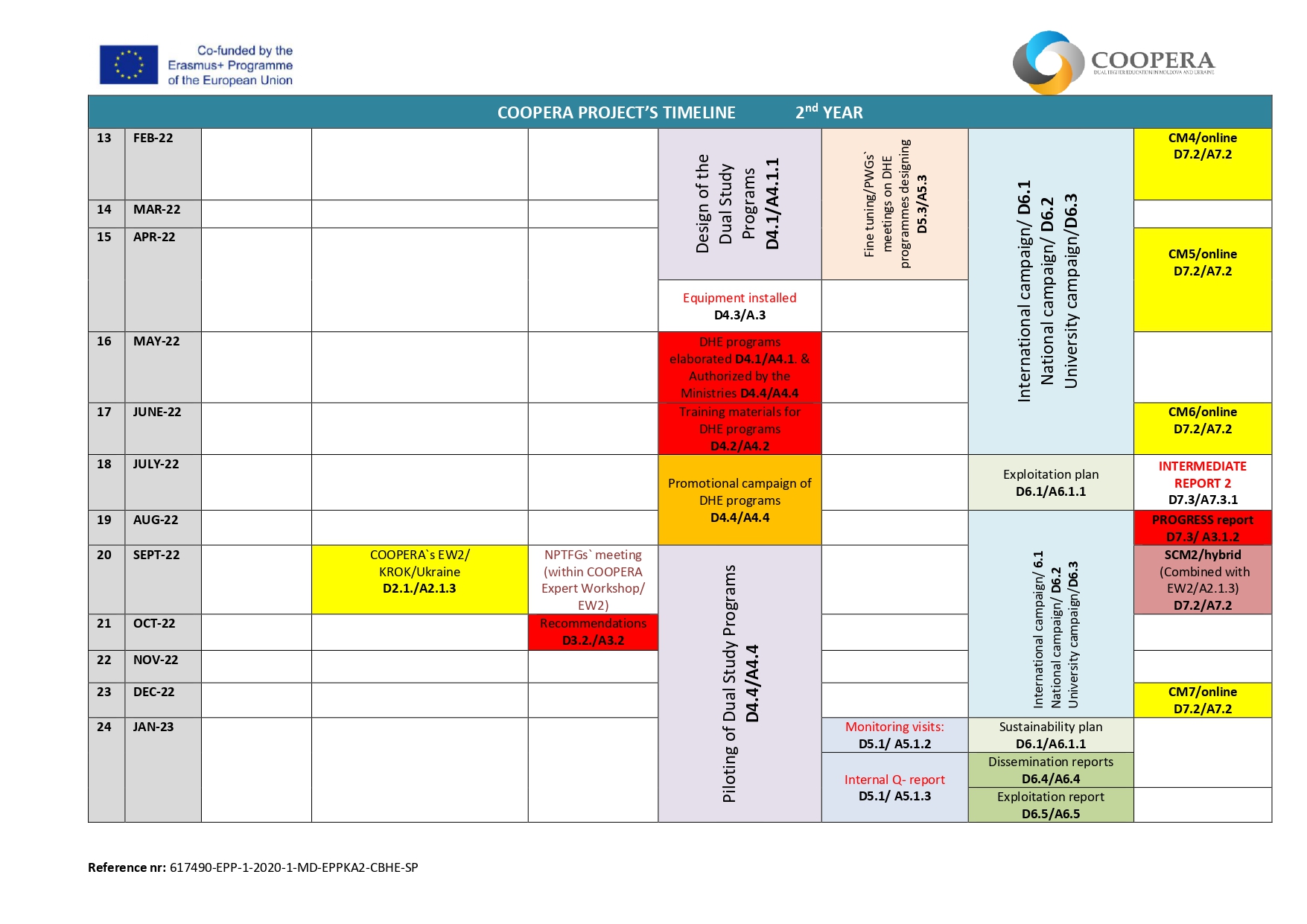
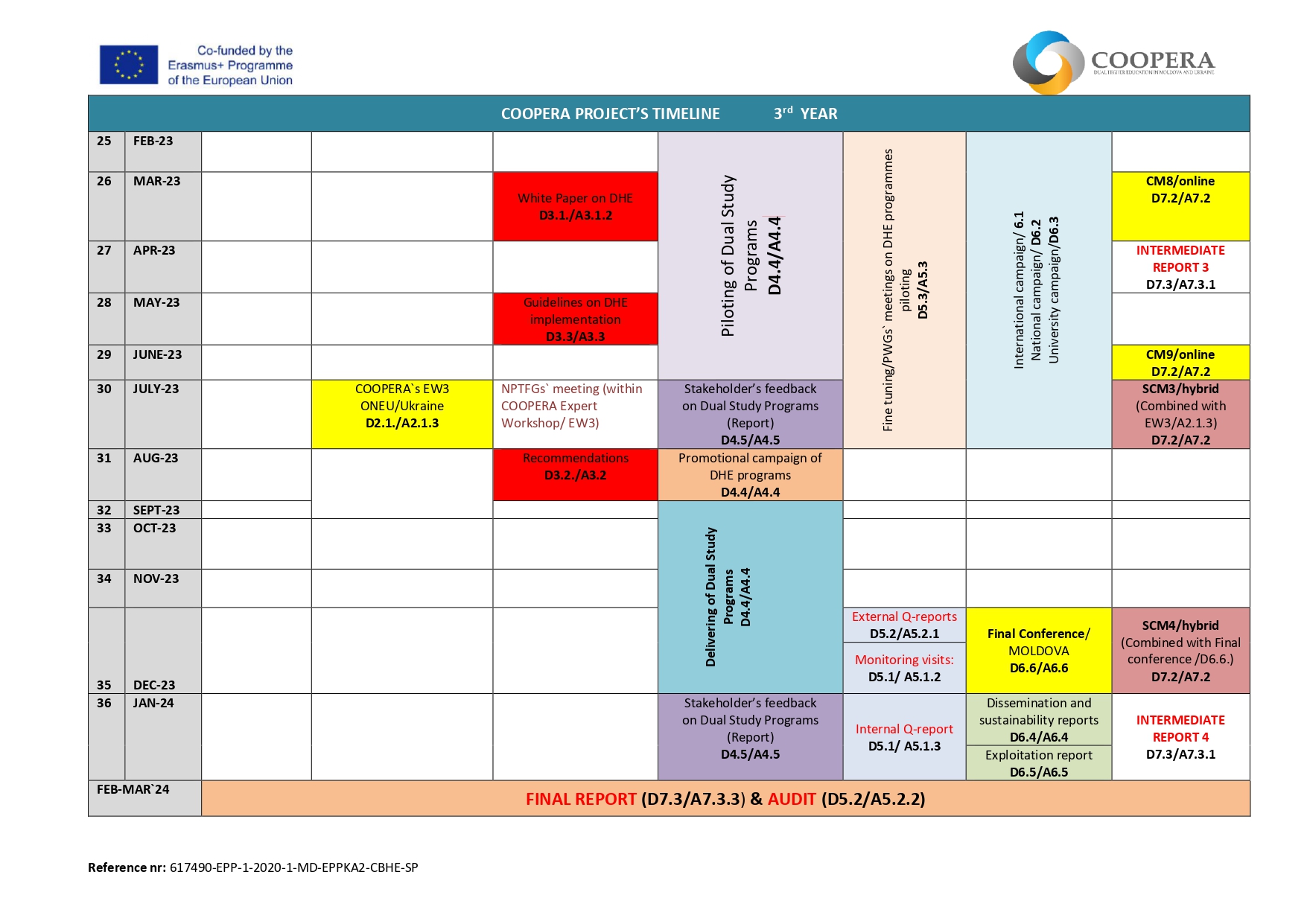
The COOPERA Project Timeline outlines the detailed three-year plan for the implementation of the Dual Higher Education (DHE) programs within the consortium. This Erasmus+ co-funded initiative sets a clear roadmap for preparation, development, piloting, and dissemination activities to promote and integrate dual study programs across participating institutions.
Year 1 (2021) focuses on foundational activities including the formation of project working groups, establishment of national policy task forces, initial surveys, and study visits to partner countries such as Poland, Moldova, Bulgaria, Spain, and Germany. The year culminates with program identification and initial recommendations to guide further development.
Year 2 (2022) is dedicated to fine-tuning the programs, installation of equipment, authorization by ministries, and development of training materials. This year highlights promotional campaigns, continuous monitoring visits, and expert workshops, ensuring the programs meet quality standards and stakeholder expectations.
Year 3 (2023–2024) concentrates on piloting the dual study programs with stakeholder feedback actively incorporated. The project undertakes various promotional events and international campaigns to increase visibility. It concludes with comprehensive evaluations, sustainability and exploitation reports, and a final conference held in Moldova, wrapping up with the submission of the Final Report and project audit.
These timelines demonstrate a well-structured and collaborative effort aimed at transforming higher education through innovative dual study systems, ensuring quality, sustainability, and long-term impact.